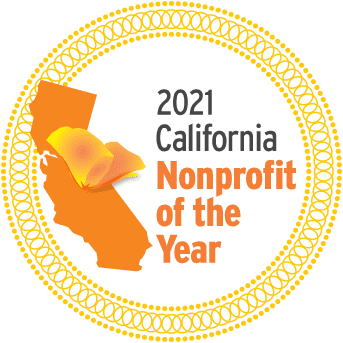Beyond completing your AA Degree, what goals have you set for yourself?
I want to take my daughter to dinner, and when/if she gets married, I want to walk her down the aisle. I want to earn an MFA and a PhD and teach at a university. I want to develop Prison Renaissance, the non-profit organization I co-founded that creates models for incarcerated people to participate constructively in society.
What do people most commonly misunderstand about the criminal justice system, and about incarcerated people? What do you wish people understood?
I think people misunderstand the criminal justice system by thinking it’s about good people and bad people. It’s not. It’s more so about marginalized people and privileged people. I wish people understood that not only can money buy justice – which makes no justice at all – but poverty invites injustice. What I wish people understood about incarcerated people is that people living criminal lifestyles want productive roles in society. But they feel locked out, so they join alternative societies. Some of these alternative societies are criminalized, and while of course cultural practices like gang warfare must be criminalized, what do you say to a 12-year old who is taught in his neighborhood that the violence you “know” is wrong is right. Does anyone really believe, for instance, that if they grew up in Syria and their whole family were members of ISIS, that they wouldn’t grow up to be terrorists? I think that once we understand that crime, violence, and even terrorism aren’t about good people and bad people, but about human conditions, we’ll develop more effective strategies for fostering a safer world.
What does Liberal Arts Education mean to you? Why study liberal arts?
Liberal arts, to me, is the study of what unites us as human beings. When I read in 2017 a story about an Athenian in 200 B.C.E and his struggles and values resonate with mine, the experience highlights our shared humanity. When I recognize that shared humanity with the Athenian stranger, I’m more likely to recognize the humanity I share with the white guy sitting across from me, or the Syrian I see on television. I also study liberal arts because it doesn’t teach me what to think. It teaches me how to think. With its disciplines for investigation, it gives me the tools to find my own conclusions. Liberal arts helped me find out who I was and what I believed. As a nation, we could save millions of children from making decisions that lead to prison if we taught them how to discover who they are and what they believe.
What are you passionate about?
I’m passionate about writing, literature, prison reform, social justice, and making amends to the communities I violated. These passions coalesce in my dedication to Prison Renaissance, an online journal and a movement to create more empathy through the exchange of art between free and incarcerated people. I co-founded the organization to promote literature created by incarcerated people, bring humanities practices to underserved populations, and use these practices to find unique solutions to social problems like mass incarceration.
Are you involved in any activities outside of the Prison University Project?
I’m involved in several activities outside of the Prison University Project. I write a monthly online column called “Good Behavior” for Easy Street Magazine. “Good Behavior” explores the intersection of life, art, and incarceration. It’s important because I use it to put a human face on incarcerated people. The column is a platform to break negative stereotypes about people like me. I’m also developing a registry of incarcerated people’s published work for Prison Renaissance. This is part of a campaign to interest professors in incorporating incarcerated people’s stories, essays, and talks into curricula. Our goal is to expose students to the human face of incarceration through their work while providing incarcerated people with another constructive way to participate in society.
Who are the people in your life who have helped you succeed? Tell us about them.
My father taught me to read before I started school. During summer vacations and holidays, he made me read and write book reports. He taught me how to get a library card. He taught me discipline. The discipline and mastery of English he engendered in me helped me succeed. My mother taught me that it’s never too late to start your life over. 10 years after her divorce, she left her job as a bank teller and attended law school. She built a new life for herself. After a crisis in her life, she returned to her homeland Nigeria where she wasn’t licensed to practice law. So she went to law school again at 50 years old. I made all the wrong decisions in my teens, and they culminated in me murdering a man. Some people might consider murder a point of no return, but my mother taught me that it’s never too late to turn around and change your life. My daughter saved my life. She was born, and love transformed me. Before her, I didn’t care about anything, not even myself. But she gave me a reason to keep going, and on that journey, loving her taught me how to love myself.


